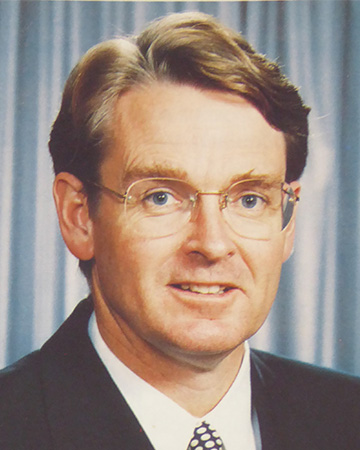Major restructuring of Perth City Council
18/10/93
Premier Richard Court today announced a major restructuring of Perth City Council with the objective of improving the City for all Western Australians.
The Premier said that the restructuring would result in an inner city area which more properly reflected the social and economic priorities of the community, while giving residents in neighbouring suburbs greater control over local decision-making.
Mr Court said the Perth City Councillors had been doing a good job and the changes did not reflect a criticism of their management.
The time had come, however, for a restructuring to better reflect the needs of the communities involved.
"The State Government has given careful consideration to this restructuring plan taking into account more than a decade of community debate on the effectiveness of Perth City Council," Mr Court.said.
"The plan is balanced, taking into account the needs of the whole community including business and those living in the inner-city suburbs, as well as the wider community who visit the central city area.
"Perth City Council has to change to meet the changing needs of these community groups - a requirement underlined by the fact that the present boundaries of the council have not changed since 1920."
Mr Court said the restructuring plan would involve the establishment of a Capital City Council and three new Towns to meet the requirements of neighbouring suburbs.
"A Capital City Council called the City of Perth - Capital City of Western Australia would be created to deal specifically with the Central Business District (CBD)," he said.
"Three other councils - the Towns of Cambridge, Vincent, and Shepperton - each with a population of more than 20,000, would be created to cover the neighbouring suburban areas.
"There will be no forced redundancies of PCC staff and an independent analysis of PCC budget figures indicates that the restructure should not require an increase in present rating levels to fund the new councils.
"In fact, this restructuring will lead to an improved level of services for these new suburbs because residents will have a greater control over decision-making.
"The new Capital City Council in turn will focus on making the inner city area a vibrant, attractive capital city for the benefit of the whole community.
"Three committees will help guide future planning and development of the central area. They are:
· the Premier's Capital City committee, which will formulate policy and co-ordinate decision-making;
· the Capital City technical committee, which will provide technical input and advice; and -
· the Capital City development committee, which will be a forum for business and commerce to participate in future planning. It will include State Government, city council and private sector representatives."
The Premier said that the Capital City development committee in particular would play a crucial role in drawing on business expertise to:
· promote and lift the profile of the capital city;
· lobby State and local government with strong policies and programs;
· identify and promote employment and business activity;
· encourage international and interstate corporations to relocate to, and invest in, the capital city;
· co-ordinate action to improve the appearance of the capital city;
· foster small business development; and -
· organise and promote special events.
The Premier said councillors from the Perth City Council would be replaced by five commissioners appointed for a period of two years to guide the transition. The former councillors would be invited to join advisory committees for each area.
The four new councils - each to have a mayor and eight councillors - would be created in mid-1994 and be fully operational after the May 1995 council elections. The commissioners would relinquish their executive roles and take an advisory role at that time.
Mr Court said PCC administrative staff would continue to be centrally located during the transition and be gradually redeployed to the new councils as they become established. Some early retirements might be offered but there would be no forced redundancies.



